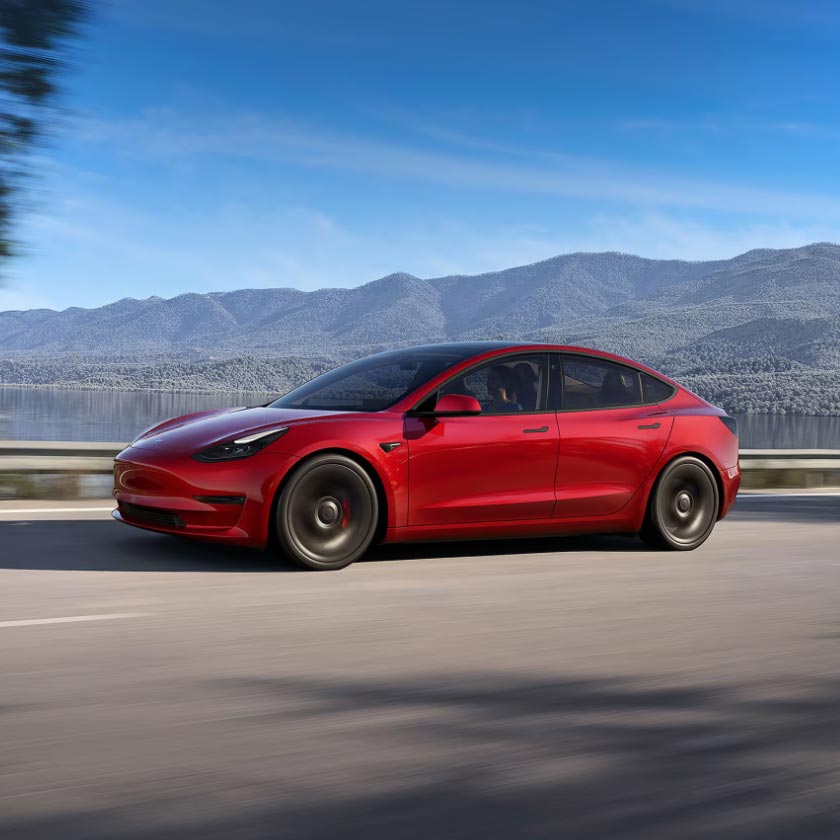Image: Tesla
Tesla was selected as the new Top Pick in US autos by Morgan Stanley. The manufacturer attracted the firm with its profitability, FCF generation, strong balance sheet, and ability to use its scale and cost leadership to drive competitive advantage.
Morgan Stanley sees Tesla's recent price cuts as one of the latest signs that the electric vehicle market may be entering a “shake-out” phase. So the firm is cutting exposure across its entire EV portfolio while still making Tesla its top pick.
Tesla's massive price cuts are accelerating the deflation of electric vehicles, which is why Morgan Stanley asked the question: so what does the competition do? As the world leader in electric vehicles, Tesla's more aggressive pricing stance is putting significant fundamental pressure on its competitors. The firm's analysts are poised for lower margins and higher stakes in the near term. They doubt whether competitors can keep up in this electric car race.
“Tesla our new Top Pick in US autos (replacing FREY) as we are attracted to its profitability, FCF generation, strong balance sheet (approximately $20bn net cash), and an ability to use its scale and cost leadership to drive competitive advantage,” wrote Morgan Stanley analysts. The price target has been reduced to $220 from $250 as the firm takes into account lower transaction prices. Analysts still suggest about a 50% upside at materially lower execution and dilution risk vs peers.
Morgan Stanley believes that investors should expect the industry's price leader to continue offering a better product at a lower price. Tesla can significantly reduce the prices of electric vehicles in the industry, which is a prerequisite for achieving higher levels of electric vehicle penetration through 2030 and beyond. Analysts wrote that they have long seen a path towards a $15,000 to $20,000 electric vehicle that could accelerate electrification in an emerging market like India.
As Tesla becomes an increasingly aggressive leader in price cuts, competitors must now also cut prices or face a significant reduction in market share, if not a complete decline in absolute volume. “Other than Tesla, no other EV name under our coverage has proven to make a profit on their EVs and some (RIVN, LCID) have a BOM (Bill of Materials) cost still well in excess of their average selling prices,” the analysts wrote.
“We forecast Tesla to take a disproportionate share of the EV profit pie. When looking at overall industry profits in 2030 (derived from est. EBIT per unit x US total BEV unit sales in 2030 — see calculations in Exhibit 12 below), Tesla's profitability advantage and manufacturing prowess becomes even clearer. Of the est. $17.3Bn EV profits in the US in 2030, Tesla takes the cake. At ~2.2mm units with an est. $6,500 EBIT/unit, Tesla accounts for over roughly 82% of the EBIT pie. While Tesla can profitably make EVs with ~$6,500 EBIT/unit, Ford and GM's average EBIT/unit is $1,335 by 2030. Naturally, these are rough estimates that are subject to change; as such, we account for such variability in our Sensitivity.”
H/t @SawyerMerritt/Twitter
© 2023, Eva Fox | Tesmanian. All rights reserved.
_____________________________
We appreciate your readership! Please share your thoughts in the comment section below.
Legal Disclaimer --
This article is for informational purposes only. You should not construe any such information or other material as an investment, financial, or other advice. Nothing contained in this article constitutes a solicitation, recommendation, endorsement, or offer by Eva Fox, Tesmanian, or any third party service provider to buy or sell any securities or other financial instruments in this or in any other jurisdiction in which such solicitation or offer would be unlawful under the securities laws of such jurisdiction.
Eva Fox holds zero shares of Tesla, Inc., and currently (at the time of this article's publishing) holds zero options or securities in Tesla Inc. and/or its affiliates.









